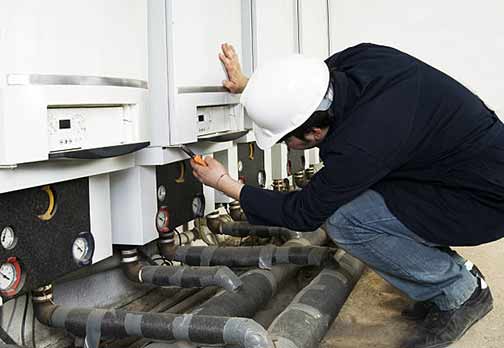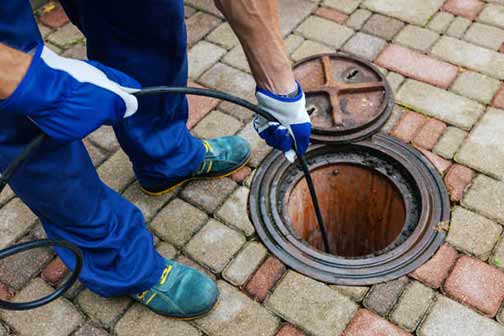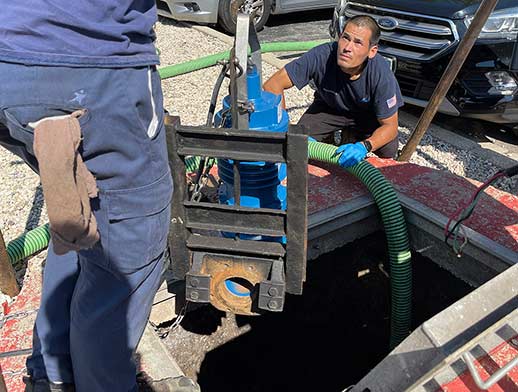
As a business owner, it’s essential to have a reliable and efficient plumbing system to ensure the smooth operation of your establishment. If you own a restaurant, office building, or retail store, understanding the importance of commercial plumbing services and knowing how to find the right professionals for the job is crucial.
The Importance of Commercial Plumbing Services
Running a business requires many moving parts, and the plumbing system is undoubtedly one of the most critical components. Here are some reasons why commercial plumbing services are essential:
Maintaining a clean and hygienic environment: A faulty plumbing system can lead to leaks, clogged drains, and other issues that compromise cleanliness. Commercial plumbers can ensure proper drainage and clean water supply, enabling you to provide a safe and sanitary environment for your employees and customers.
Preventing water damage: Water leaks can cause severe damage to your property, leading to costly repairs and potential disruptions to your business operations. Professional commercial plumbers can identify and fix leaks promptly, preventing any significant damage from occurring.
Ensuring compliance with regulations: Commercial plumbing is subject to specific regulations and codes to ensure the safety and well-being of the people in your establishment. By hiring professional commercial plumbers, you can ensure that your plumbing system meets all the necessary standards and requirements.
Common Commercial Plumbing Services
Commercial plumbing encompasses various services to meet the unique needs of businesses. Here are some of the most common commercial plumbing services:
Installation and maintenance of plumbing systems: Whether you’re setting up a new establishment or need to upgrade your existing plumbing system, professional commercial plumbers can handle the installation and maintenance of pipes, fixtures, water heaters, and other necessary components.
Drain cleaning: Clogged drains can disrupt your business operations and cause unpleasant odors. Commercial plumbers can effectively clean and clear your drains to ensure proper water flow and prevent any potential issues.
Leak detection and repair: Water leaks can occur in various parts of your plumbing system, including pipes, faucets, and toilets. Experienced commercial plumbers have the tools and expertise to detect and repair leaks efficiently, preventing further damage.
Sewer line services: Issues with your sewer lines can pose serious health risks and disrupt your business. From sewer line inspections to repairs and replacements, commercial plumbers can handle all aspects of sewer line services.

Clogged drains can disrupt your business operations and cause unpleasant odors. Commercial plumbers can effectively clean and clear your drains to ensure proper water flow and prevent any potential issues.
Finding the Right Commercial Plumbing Professionals
When it comes to commercial plumbing services, finding the right professionals is crucial for the success of your business. Here are some tips to help you make the right choice:
Research and gather recommendations: Start by conducting thorough research and obtaining recommendations from other business owners in your area. Look for reputable commercial plumbing companies with positive reviews and a track record of delivering high-quality services.
Verify licenses and insurance: Ensure that the commercial plumbers you consider are licensed and insured. Proper licensing guarantees that they have the necessary skills and knowledge to perform the job, while insurance protects you from any liability in case of accidents or property damage.
Ask about experience and expertise: Inquire about the commercial plumbers’ experience in handling projects similar to yours. Additionally, determine if they specialize in any specific areas of commercial plumbing, such as restaurant plumbing services or office buildings.
Request multiple quotes: It’s always a good idea to obtain quotes from multiple commercial plumbing companies to compare prices and services. However, keep in mind that the cheapest option may not always be the best. Consider the company’s reputation and expertise along with the cost.
Check for warranties and guarantees: Reputable commercial plumbing companies often provide warranties or guarantees for their work. Ensure that you understand the terms and conditions of their warranty before making a decision.
Maintaining Your Commercial Plumbing System
Once you have found the right commercial plumbing professionals and have a well-functioning plumbing system in place, it’s important to prioritize regular maintenance to prevent any future issues. Here are some tips to maintain your commercial plumbing system:
Schedule routine inspections: Regularly have your plumbing system inspected by professionals to identify any potential problems before they escalate. This includes checking for leaks, clogs, and signs of wear and tear.
Address minor issues promptly: Don’t ignore minor plumbing issues such as dripping faucets or slow drains. These seemingly insignificant problems can worsen over time and lead to larger, more expensive repairs.
Promote proper usage: Educate your employees about the proper use of plumbing fixtures and the importance of conserving water. Simple practices, such as turning off faucets when not in use and reporting any leaks or issues immediately, can go a long way in preventing plumbing problems.
Invest in regular hydro jetting: Regular hydro jetting can help prevent clogs and maintain the efficiency of your plumbing system. Consider scheduling professional hydro jetting services with commercial plumbers.
As a business owner, investing in reliable commercial plumbing services is essential for the smooth operation of your establishment. By understanding the importance of commercial plumbing, knowing the common services offered, and finding the right professionals, you can ensure that your plumbing system is in excellent condition. Remember to prioritize regular maintenance to prevent any unexpected disruptions to your business. With the assistance of experienced commercial plumbers, you can rest assured that your plumbing needs are taken care of professionally and efficiently.
